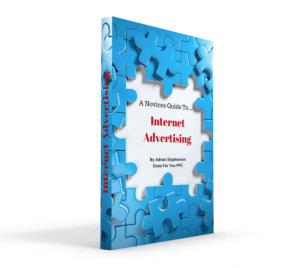In the 2015 January sales, I bought myself a new digital watch.
Here we are a year later, and I’ve not had to touch any of the buttons on it, yet it still tells me the correct time to within a couple of seconds of GMT. That’s impressive!
I also own a couple of digital radios. They stay perfectly in tune all of the time and allow me to listen to my favourite music – digital radio playing analogue heaven. Brilliant!
So, is it realistic to assume that anything in the digital world can be set up and left to run indefinitely, safe in the knowledge that it will provide optimum performance at all times?
Certainly, in some cases, but certainly not in digital marketing.
Let the train take the strain
Advertising on Pay-Per-Click platforms (eg Google Adwords) comes under that digital umbrella, and although you might initially think that after completing the set-up it’ll run smoothly down the Google railway track, you’d be wrong!
There are engineering works to contend with, faulty points, broken track and any number of leaves on the line to derail your journey.
What then are the real dangers of not managing your Adwords campaigns once you’ve set them up following Google’s textbook? (You didn’t really – did you?)
The danger of guessing
Well first out of the hat comes your keywords. These are the words (or strings of words) that you think people will type into Google to find your products and services.
Remember, you can only use guesswork to create this list.
At the point when you set up your PPC campaigns, you have no way of knowing for certain which keywords will generate profitable traffic for you.
Of course you can use various tools to help you with a ‘best guess’, but until you have been running live campaigns for a little while, you won’t know the difference between a profitable and non-profitable keyword.
Does setting and forgetting still seem like such a good idea?
Ads that sell & ads that repel
Next up comes your ads. These are your opportunity to convince the sceptical world of potential buyers to click through to your website rather than your competitors’.
You only get 95 characters in which to craft your message (that’s less than a Tweet), so getting this wrong could end in two undesirable outcomes:
- Your ad is so mundane and boring that people skim over it and pass on to the next one, or
- It is far too wide ranging, meaning that you get masses of people clicking on it (at your cost) of which only a miniscule proportion have any buying motives.
Imagine what would happen if you had created one of the above scenarios and left the ads to run indefinitely….
No prizes for guessing that you’d either end up with no customers, or no customers and a fat bill from Google!
The bidding conundrum
The third compelling reason for monitoring your PPC campaigns is all about money – not that the first two didn’t have financial implications; they most definitely did.
The way Adwords (other PPC platforms are available) works is that the advertiser has to set a bid for each keyword. Then, every time someone clicks on the Search button in Google, an automated auction takes place.
The results of the auction are dictated by two things. Firstly the bid, and secondly the Quality Score of the keyword (this is Google’s indicator of the keyword’s relevancy to the ad and landing page).
The combination of bid and Quality Score govern where your ad will be ranked, and how much the click will cost you.
Bidding too low (in comparison with your competitors) may mean that you don’t rank on the first page of results, or at best you appear in the ‘also ran’ positions that don’t get much attention. This isn’t ‘new customer’ territory.
Bid too high, especially if your keywords have poor Quality Scores, and you will pay through the nose for your click costs as well as being at the mercy of Happy Clickers, whose mentality is to click on any ad at the top of the results – just because it’s in pole position! No ‘new customers’ here either.
Turn off cruise control
Now I’d like you to wind back to when the campaign was set up and you set bids for your keywords.
At this stage you could probably only hazard a guess at what might be an appropriate bid. So leaving the campaign unmonitored means that you are ignoring all of the information that Google will give you if you ask nicely.
It’s a bit like setting the cruise control on your car to 35mph through town centres and on motorways. Sooner or later you’ll get booked for driving too fast or too slow.
Far better to stick it in ‘manual’ and take notice of the roadside speed signs, slowing down and speeding up as circumstances change.
The verdict
If you’re prepared to live with the massive risk of ‘setting and forgetting’ PPC campaigns, then good luck. Google & co will love you!
To those who don’t have a bottomless pit of cash, I’d strongly recommend keeping a very close eye on any PPC campaigns that you run and understanding the implications of any changes that you make.
Ignore them at your peril!





